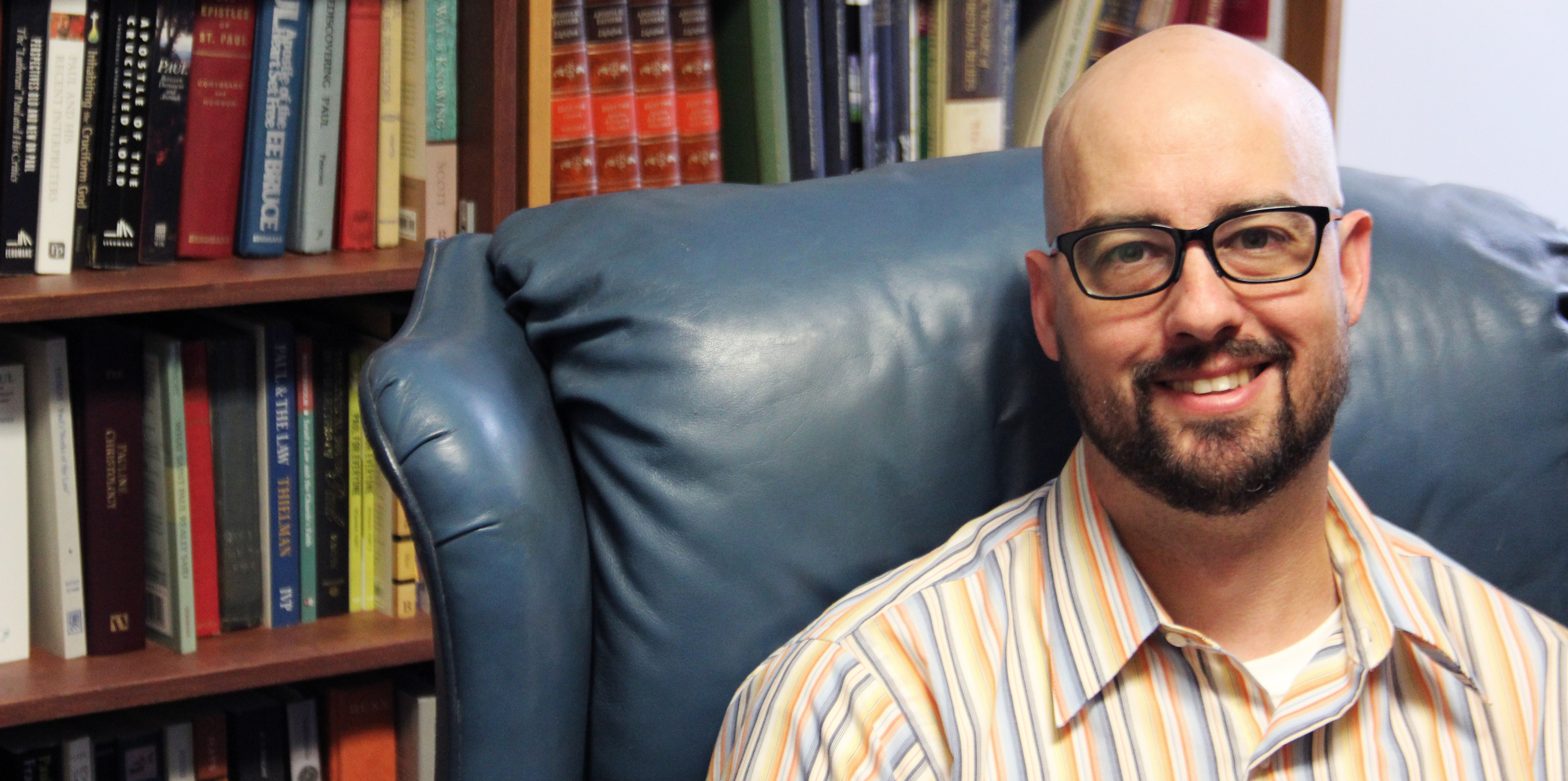
To this continuing series on “Pro Tips for Busy Writers,” I’m pleased to welcome Matthew Bates, Associate Professor of Theology at Quincy University.1
Matthew has just released his fourth book, Gospel Allegiance, which continues the line of argument from his Salvation by Allegiance Alone. Personally, I’ve particularly appreciated Matthew’s Hermeneutics of the Apostolic Proclamation, which does an excellent job trying to sketch a portrait of a hermeneutically coherent Paul.
Matthew co-hosts the OnScript podcast and keeps a personal website where you can learn more about him.
By this point in your career, you’ve likely worked on several writing projects concurrently (e.g., articles, books). What’s a memorable example of a cluster of projects you worked on concurrently?
I drafted Salvation by Allegiance Alone (Baker Academic, 2017) while working on revising and copyediting The Birth of the Trinity (Oxford University Press, 2015).
Larger projects (e.g., a dissertation, a second monograph) can be more important but less urgent than others (e.g., conference papers, book reviews). How do you avoid letting good-but-less-important projects push out or cause you to procrastinate on those that are more important but less urgent?
Be passionate about your own research agenda. Do not let someone else’s agenda co-opt your time and talents. You’ll find yourself exhausted and producing lower quality work if you try to sustain projects you care little about. Say ‘no’ to less important projects. Always. Well, as much as possible without alienating friends and mentors. If you don’t have a spine, grow one, so you can find a nice way to say ‘no.’
When you’ve worked on multiple projects concurrently, what processes, principles, or practices have you used to be sure you’re making good progress on all fronts?
I try my best never to draft multiple projects simultaneously, although I revise and edit nearly finished projects concurrent with drafting new ones. But for drafting, which requires more creative effort, I work in a strictly linear fashion, starting and completing each project without letting any other writing work intervene. I want and need total immersion (especially if the subject is baptism—sorry, bad joke, couldn’t resist).
Even within my book projects I always work sequentially, writing the introduction and each chapter in order, then the conclusion. I don’t skip around at all, except I may rearrange slightly while in the midst of the writing process. Once a project is drafted, however, I always let it sit on the shelf for a minimum of three weeks before revising it—and during that time I may start a new project. I find copy-editing, proofreading, and book reviews can be a welcome break when I am in the middle of drafting a major project (e.g., between book chapters).
Momentum is key. Find a large enough block of time to get moving. Then have a weekly writing schedule that you refuse to disrupt. Do. Not. Stop. I also find it invigorating to read some good fiction while doing my academic writing.
Do you divide your process between research and writing? If so, how?
I do enough preliminary reading and research to get oriented and to feel certain that I know mostly where my argument is heading. But after that I read and write simultaneously. I find that if I do too much preliminary research, I have trouble finding my own voice, and my creative energy is stunted. My best research-writing, I think, is informed by what others have written, but rarely driven by it.
What do you do to help you avoid overcommitting yourself either on timelines that are too short for their projects or on how many projects you take on? How do you avoid undercommitting?
While it is important to be a team player, working with others on large projects that matter, I teach a heavy load. So I really have to believe in it to say ‘yes.’ Personally, under-committing isn’t possible. I want to safeguard time to work on the projects that I feel matter for the church and the academy, so that I have a margin that permits me to say ‘yes’ when I spot a new opportunity.
When working on multiple projects concurrently, what tools do you use (e.g., filing systems, project management tools, apps)?
Apart from interlibrary loan, only Microsoft Word, files of electronic articles, the internet, and past bibliographies I’ve created.
How has your approach to concurrent writing projects changed over time?
In the past I wasn’t as careful. Now I avoid concurrent writing as if it is a plague of death, at least for initial drafts. I’ve learned over time that I work better if I am deeply engaged in only one project at a time. Given this seems to be rooted in my psyche, I doubt this will ever change.
What are two or more projects you’re particularly excited about that you’re now working on concurrently?
While finishing final edits and proofreading for Gospel Allegiance (Brazos, 2019), I was drafting a more scholarly article on “faith.” When I finished that, I started penning a dictionary article on Paul’s gospel. I am about to start a new book on salvation for Brazos. I will be revising and editing the articles while writing the new book.
What closing advice (if any) would you offer to (post-)graduate students and new faculty as they try to become comfortable and competent for themselves in making progress concurrently on multiple writing projects?
Only this: If you are like me, you’ll be most efficient if you work sequentially. Do not try to work on multiple creative projects concurrently. But you might not be like me. I might be weird. We can be friends anyway, I hope.
Header image provided by Freddie Marriage via Unsplash. ↩

Leave a Reply